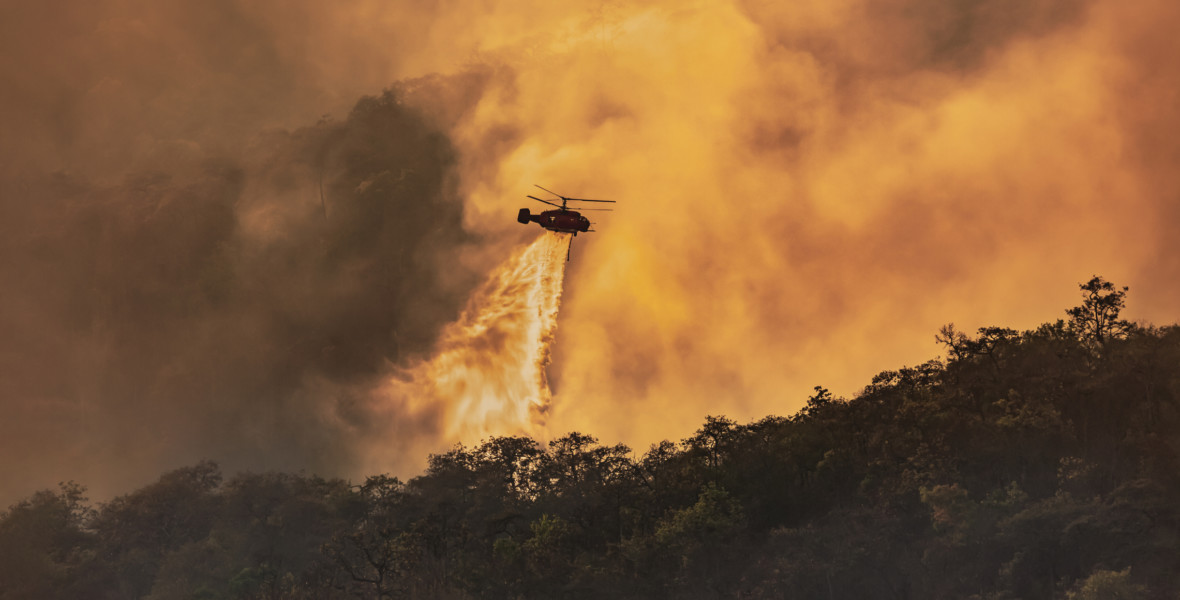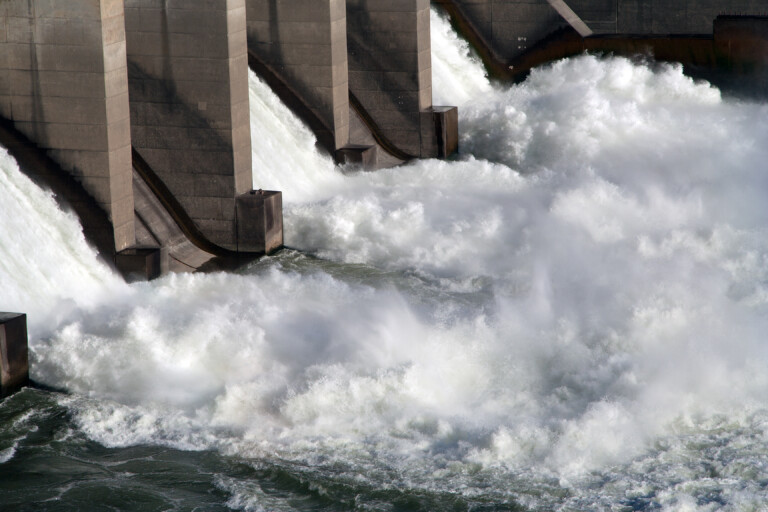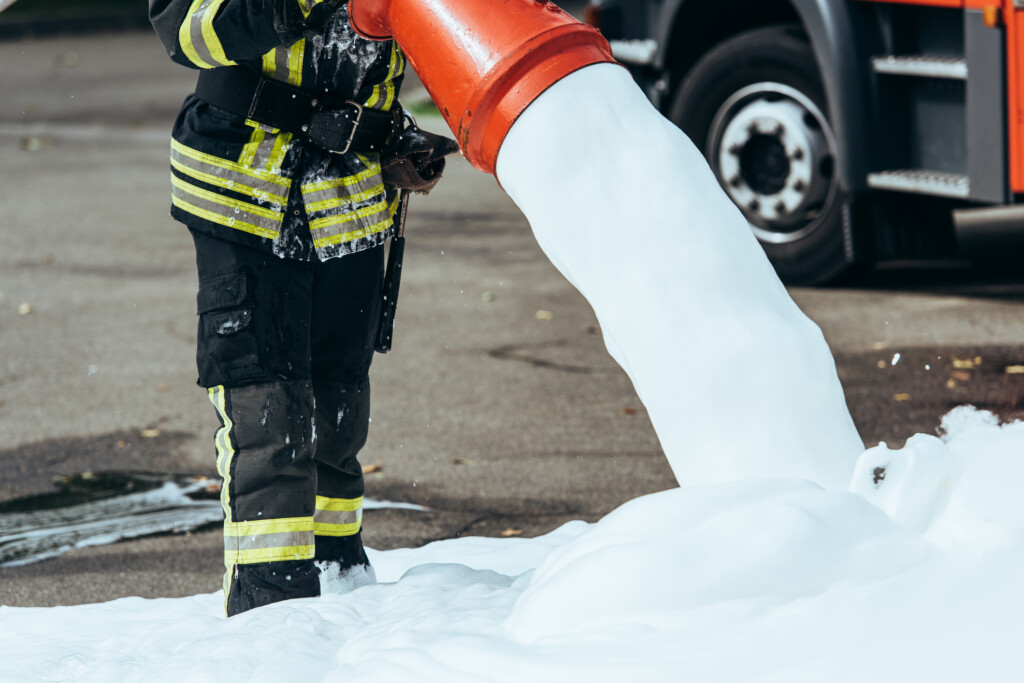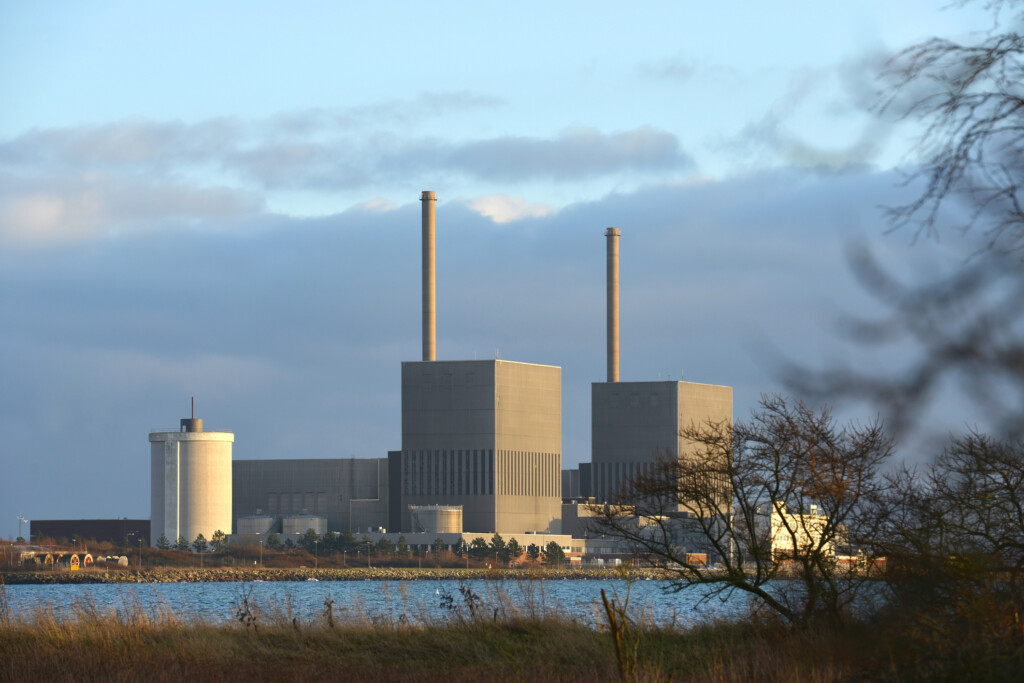Transport
U.S. election results pivotal for climate change

As wildfires rage in California, the election campaign in the United States is entering its final phase. The election on 3 November will determine whether Donald Trump gets to continue running the country, or whether Joe Biden will take the helm. The outcome of the election will have a decisive impact on climate change.
Prenumerera på Extrakts nyhetsbrev!
Läs mer
Håll dig uppdaterad! Få kunskapen, idéerna och de nya lösningarna för ett hållbart samhälle.
Personal data is stored only for the mailing of Extrakt newsletters and information related to Extrakt’s operations. You can cancel the newsletter at any time, which means you will no longer receive any emails from us
As wildfires rage across California, the Gulf Coast drowns and Alaska thaws, the United States is gearing up for an election. How hot is the climate change issue in this year’s U.S. Presidential election?
“Climate change is a bigger issue in the 2020 presidential election than ever before. Two-thirds of the American people think the U.S. government should do more to prevent climate change. But like so many other issues in the country right now, there are huge differences that correlate with stated party affiliation.”
This is the view of Marcus Carson, associate professor and researcher specialising in climate and environmental policy at the head office of the Stockholm Environment Institute. Carson is also an American who has lived in Sweden for the past 20 years.
“People who identify as Democrats are virtually unanimous in their conviction to take action, while the majority of Republicans are still hesitant or even deny climate change.
Damage that goes under the radar
Four years ago, when Extrakt interviewed Marcus Carson ahead of the election between Donald Trump and Hillary Clinton, he was already predicting that a Trump victory would have disastrous consequences for the country’s climate change policy. So, reflecting on these four years in hindsight, what was the outcome?

“Besides the obvious consequences like withdrawal from the Paris Agreement and scrapping Barack Obama’s Clean Power Plan, the Trump administration’s policies are causing damage at a level of detail that goes under the radar because their most severe consequences will only come to light later on,” he says. One such example is how the definition of wetlands has changed under Donald Trump’s rule.
“Not many people pay attention to something as nerdy as changing the definition of ’waters of the U.S.A.’. But as a result, the number of wetlands areas protected under the Clean Water Act shrinks significantly, making unregulated development easier. Since intact wetlands have a key function as a carbon sink, this can have huge impacts on the climate in the long run. In the shorter term, however, they are not as clear.”
Climate change deniers silent in this year’s election
Yet another example Carson highlights is the decision to open up the Arctic National Wildlife Refuge and other public lands to oil drilling through lease sales.
“Companies won’t start drilling straight away, which means that the direct environmental impacts won’t occur during the Trump administration.”
At Extract’s last meeting with Carson, he talked a lot about climate change deniers, a base that Donald Trump still sides with. Carson testifies that climate deniers have fallen silent in this year’s election.
“This might be because Trump’s energy and economic policies strongly favour fossil fuels, so they don’t need to be as vocal right now. Public opinion has also shifted a great deal since 2016.”
This time, the choice is between Donald Trump and Joe Biden. What are the most obvious differences between the two candidates’ policies on climate change?
“Joe Biden intends to rejoin the Paris Agreement, and though he is unlikely to be able to withdraw the licences to drill in the Arctic or other public lands, he can stop new licenses from being awarded. And he has promised major investments in the energy system, as well as restoring health and safety regulations on emissions from coal-fired power plants”.
Investments in energy and public transport
Rolling Stone Magazine describes Biden’s climate plan as “by far the most ambitious climate agenda ever put forward by a presidential nominee.” Biden’s climate plan includes efforts to restructure and modernise both the energy system and the country’s public transport system.
“The Trump administration’s policy goal has been to reduce regulation. This has meant weakening measures that reduce energy consumption (like fuel economy standards) and protect health and the environment. It has also meant disregarding the science on climate change. The Trump administration has even repealed a rule to phase out ordinary light bulbs on the grounds that people should be able to choose for themselves. But coal producers are suffering and higher energy consumption is needed for those companies to survive.”
Donald Trump’s policy goal has been to reduce regulation. This has meant weakening measures that reduce energy consumption and protect health and the environment.
“Another crucial difference is leadership within an administration. Donald Trump has appointed former lobbyists from the fossil fuel industries to head up departments like the Environmental Protection Agency, which exists to safeguard the environment and health.” Joe Biden has promised that such agencies will be led by people whose actions will be informed by science and who prioritize climate change, environment and health.
Carson, whose research addresses the significance of Arctic wetlands for climate change, is especially encouraged by one aspect of Biden’s politics.
“Joe Biden also has a major wetland restoration programme on his climate policy agenda.”
JOE BIDEN’S CLIMATE PLAN
Rolling Stone Magazine describes Joe Biden’s climate plan as “by far the most ambitious climate agenda ever put forward by a presidential nominee. . .not just by eliminating carbon pollution, but reimagining every aspect of our world, including designing ways to protect the most vulnerable from the brutal impacts of heat, disease, fire, and rising waters”.
Some highlights of Biden’s climate plan:
• 2 trillion dollars in investments for climate action
• Carbon-free electric power grid by 2035
• Zero-emissions public transport for cities with more than 100,000 inhabitants
• 1 million new jobs in the U.S. auto industry by switching to electric-powered vehicles
• Employing people on public-works projects, such as re-creating wetlands
• A new agency for developing transformative clean energy technologies








